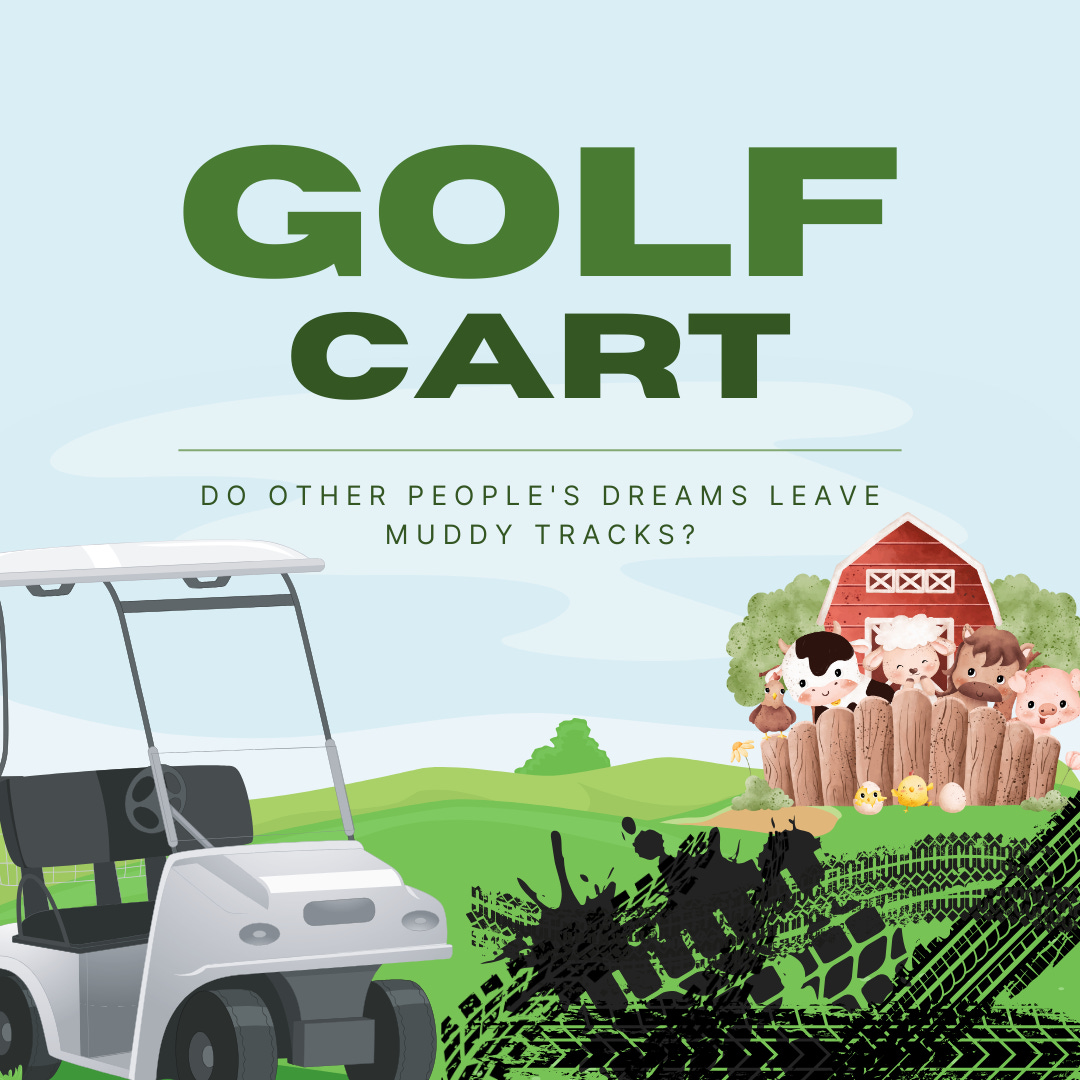I meant to reply to each of your thoughtful comments, but then I remembered Passover is coming…
So instead, I’m sharing your comments here. I enjoyed each one!
Anonymous, email:
It's something I see often with the students I work with—I teach in a boys' elementary school. One 11-year-old boy told me about the cruise he went on over the summer.
"It was to die for," he said.
I asked him what he meant.
"Like, I would go on another cruise and then die—it would be so worth it," he told me.
That comment really shook me. In just another year and a half, this boy will have his bar mitzvah (a Jewish coming-of-age ceremony at 13), and the thing that gets him the most excited is an expensive vacation!? How do we ever expect him to be excited by studying a blatt Gemara (a page of the Talmud, the central text of Jewish learning)? Or to be uplifted by an inspiring tefillah (prayer) in synagogue?
We need to teach our children—and ourselves—that gashmius (material pleasures or materialism) exists for a purpose. It’s not just here for simple enjoyment. Material things are tools that G-d gives us to help us grow spiritually and serve Him. If our pleasures aren’t helping us get closer to that purpose, then we really need to pause and ask if the indulgence is worth it.
I strongly suspect that I'm guilty of it. I’ve often found that I’ve bought more than one copy of the same book, and I feel foolish. Lately though, the unending repairs that my motorcycle needs has me vexed.
This post floats my boat!! I'll share a purchase-that-disappointed-me story since you asked: Background: I felt pretty secure about my not-buying stuff skills: We lived sort of on the "sparse" side of things (with regards to finances) for years, and I shopped Thrift Stores and we filled our house with love. However, way back in 2010 or whenever, there was a definite breach to my memetic defenses!! The Facebook ad for "Tieks" GOT to me! Leather shoes, (in vivid colors) probably well-made, with teal soles. Or teal-colored stuff in the soles. In a word: Memorable. Lil' ticking time bomb of an, ahem, image... that sat in the back of my brain for like... 13 years?? When I finally felt I had the opportunity, I drooled all over their website, and then clicked my way to a consignment store* that's online.. aaaaaand... ordered a USED pair of Tieks via a consignment store (for half the price they'd be new) sight-unseen. (Turns out that size 8 Tieks were not right for me!!) * I still have a high interest in occasionally getting things from consignment stores, and may yet again! Not inherently bad or anything.
… In all the cases you mentioned, it seems to me that the sufferer might profitably try to tease out two separate motives: the desire to be associated in others' minds with a certain attribute or behavior, and the object-level need for the thing itself. If all we want is to be associated with the idea of health, then we want to empathetically investigate how the others around us form their feelings about healthiness, in order to efficiently create the relevant halo effect manipulation. If we want to actually have more energy available to our bodies day to day, to alleviate pains, to function better for longer, etc, then we would do better to investigate the causes of those phenomena, instead of looking for things socially haloed as healthy. Likewise, if you want to be perceived as a great scholar, you should figure out who your audience is and how they form their conclusions, and then learn the rhetoric or acquire the costume or credentials to generate the desired conclusion in their minds. If you want to know what's true in the texts, that suggests another approach entirely. The trap you describe is a form of narcissism: confusing something of independent worth, with how you imagine others think of you.
There's a relentlessness to the attention economy that is sometimes scary. Now that we have algorithms watching/hearing/analyzing every online movement, and probably a fair amount of offline movements too, the targeted ads have become powerfully effective. It's a personal shopper for you, all the time, but they're actually interested in you buying as much junk as possible, instead of just dressing you for success. My parents have a golf cart. They ride it around this campground where they rent a spot for a trailer. It's incredibly fun. For whatever reason, I decided I needed a golf cart for my house. I started to scour the internet for deals. $2500+ for anything decent. I sort of mentally slapped myself. What in the world was I going to do with a golf cart besides drive from the barn to the house? I managed to wrest myself away from it and my algorithm still serves up the occasional golf cart ad to me.
This resonates deeply with the Indian understanding of maya—how even "permissible" indulgences can quietly take control if we are not mindful. True holiness is not about just following rules but about maintaining awareness and restraint before desires start dictating our choices. It also reminds me of something I once shared: spirituality and humanism are interconnected, while religiosity, when reduced to rigid rule-following, can create barriers between us and the Divine. A God-fearing life is not about ticking off boxes but about consciously choosing what brings us closer to both the Divine and humanity. Sometimes, true devotion lies in breaking a rule for a higher cause—like the Sikh doctor who shaved his beard to serve his patients. In the end, what matters is not just discipline, but the intention behind it. Loved this reflection!
I live in a fairly poor neighborhood. Even poor people want nice things. And candy and green soft drink for their kids. Our body is constantly pulling us down, our soul pulls us up. The Torah tells us to have them work together. Nice clothes for Shabbos, nice food, and yes, sometimes Hava Java. Of course!
Cb, email:
Definitely thought provoking, especially this time of year when our finite resources need to stretch to get ready for Pesach (Passover).
I would posit, though, that the myriad ad pages of the assorted frum (religious) Pesach (Passover) magazine editions might not quite match the uplifting tone you're presenting, unless it's just my critical eye that sees them as completely selling gashmius (materialism)...
… In all the cases you mentioned, it seems to me that the sufferer might profitably try to tease out two separate motives: the desire to be associated in others' minds with a certain attribute or behavior, and the object-level need for the thing itself. If all we want is to be associated with the idea of health, then we want to empathetically investigate how the others around us form their feelings about healthiness, in order to efficiently create the relevant halo effect manipulation. If we want to actually have more energy available to our bodies day to day, to alleviate pains, to function better for longer, etc, then we would do better to investigate the causes of those phenomena, instead of looking for things socially haloed as healthy. Likewise, if you want to be perceived as a great scholar, you should figure out who your audience is and how they form their conclusions, and then learn the rhetoric or acquire the costume or credentials to generate the desired conclusion in their minds. If you want to know what's true in the texts, that suggests another approach entirely. The trap you describe is a form of narcissism: confusing something of independent worth, with how you imagine others think of you.
Anonymous, reddit:
…this isn't one of the world's biggest issues at the moment.
Anonymous, private message:
It’s a weird dividing line, where someone might think they’re living a frum (religious) life, and totally separate immorality driven by consumption and materialism from their spiritual growth!
Rivka Meir, email:
Materialism, and the chase after material things, and the inability to distinguish between wants and needs I think is a big part of what is going awry in the US.
The other thing that I think has come to be lacking in education is ethics. Oh, and what is today called critical thinking. Being able to evaluate the truth/falsity of the information that we encounter.
I really don’t know how to help people with this stuff besides trying to be an example.
Ben S, email:
There's a children's book that I've found meaningful even though I'm about 3 times the target age. It's called the Incredible Voyage to Good Middos, and it's about a cruise ship full of religious Jews who follow all the rules but are very arrogant and materialistic. It reminds me a lot of what you're writing about. How we need to recognize that the facade of holiness doesn't guarantee real holiness. And those same basic urges of signaling and self-aggrandizement don't just go away, but mutate in a religious community.
There's a lot of books I've purchased but never read, which makes me feel bad.
This is kind of related: a few years ago in my woodshop class I was cutting a bunch of boards repetitively and zoned out. I almost cut the fingers of my left hand off! My arm recoiled just in time, and I felt a physical warm glow in those fingers for hours. The feeling of having fingers, suddenly the most wondrous thing in the world! All day, I felt grateful for having something I've always had, I was on top of the world.
I think all the ads try to convince us that their product will create that feeling, but of course no such thing exists. Only a change of perspective that makes the things you already have feel magical will make your world truly different. That's the spiritual.
I love how you gave me a word for the more subtle form of materialism; you can't beat your enemy until you've named it.
…
I'll say-not to brag-that I'm very non-materialistic, to the point I never really asked for anything for my birthday. Though I have been thinking about expensive cars lately, so maybe your article reached me in time.
AntoinetteIncome, reddit:
I feel this so hard core, and my kid isn’t even born yet! It feels like I’m already part of a rat race (btw who even signed me up for this race??) to buy the top of the line baby clothes and gear. Thanks for sharing!!
Offthegridyid, Reddit:
Hi! Not sure what religious magazines you are reading, but consumerism and materialism is pretty abundant in both Mishpacha and Ami magazines. There are plenty of ads for luxury car leases. Most ads for real estate in Israel are for luxury housing, there are jewelry adds, ads for kosher vacations in Panama, ads for grocery store always have beautiful cuts of meat.
Rav Moshe Weinberger (Cong Aish Kodesh, Woodmere, NY) often shares an observation from his son (a successful entrepreneur) that you can tell where the Jewish people are holding by the ads in magazines.
If you look at issues online from the 80s and 90s of the Jewish Observer or Jewish Action it’s incredible how the ads are not pushing affluence. This point is actually mentioned in an amazing article in Tradition that came out last year. It’s a very eye opening and observationally balanced read, [here](https://traditiononline.org/materialism-and-the-rise-of-modern-orthodoxy/).









Thank you, Isha, for sharing my words with your readers! Your reflection beautifully intertwines with the timeless wisdom that spirituality is about conscious choice, not mere compliance. Grateful for this exchange of thoughts that bridge faith, wisdom, and humanity. Wishing you continued light in your journey!
A lot of thoughtful comments. I laughed out loud at the golf cart image, thank you for that.